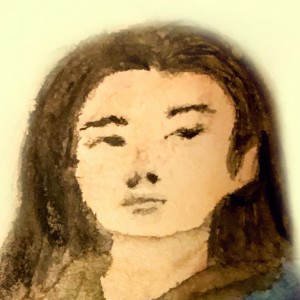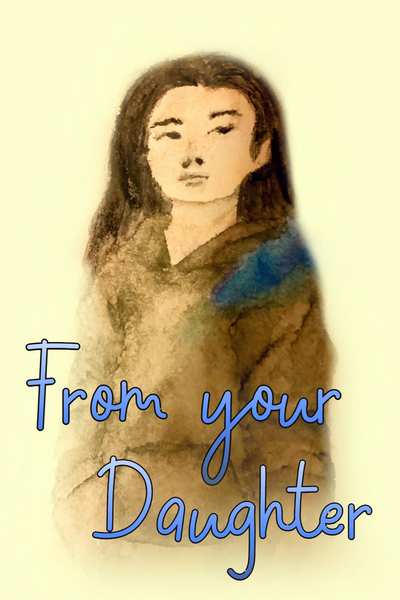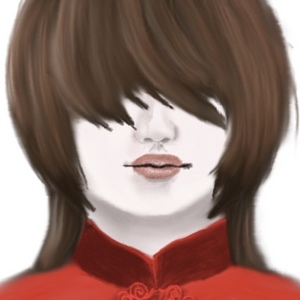To my birth family,
As you know, I am in university. It should come as no shock that I made it into Ribeiro University, a school in Southern Ontario, since I worked my ass off to get in. You don’t need to be asian to be someone who studies diligently, though a lot of asians I know do. For this letter I’ll tell you a bit about my life at Ribeiro, and my experiences of trying to fit in.
For starters, Ribeiro has many university colleges on campus. I chose to stay in one of the university college residences, a small place of just over 400 people called Rena Hill, which we call Rena for short, named after one of their first female scholars back in the 50s.
The smaller community within the larger main campus was helpful for me to transition to university, since the enrollment number is in five figures, way more than my high school.
Living in a smaller environment comes with a few perks. One is the small number of residents, so the likelihood of being able to recognize most people is very high. That includes professors as well, since a bunch of them have offices at Rena.
Another perk is that we don’t have to share the common rooms with a lot of people. During the day they’re great places to study or relax. I used the TV rooms with my friends many nights, which we book in advance if we want to watch premiers or play games. I even nap in one of the lounges because they have couches there. No one cares, since I know other people nap there. It’s no secret that university life gets so exhausting that you can’t help but wanna nap in semi-public.
I suppose I also have the perk of living with a lot of people whose first language is English, so no language barriers there. The majority of Rena’s population is caucasian, no shock. Ribeiro’s main campus residences host most of the international students, which is where they tend to hang out. Rena’s few asians are recognizable, either by their faces or their name tags on their dorm doors.
But ethnicity and race weren’t really big determinants of whether you wanted to be friends with someone. You don’t play race bingo when making friends. We’re all too busy studying (and procrastinating) to notice or care what we look like, anyway.
Of course, when the topic of my ethnicity first came up I was a little startled, though I tried to hide it. That’s one of the perks of being from a small town, I guess. Everyone knows you, so you only have to repeat your life story a couple of times. In university you’re with students from all over the country, so you get used to retelling the story multiple times.
I thought I would hate repeating the story, like a lot of people do, but I don’t. For some reason it doesn’t bother me. In fact, it feels like a unique aspect of my character that sets me apart from the other Chinese students I see. I have most of my classes on main campus, and I’ve been to events with Chinese students, but not once have I met someone in the same boat as me. That is, a fellow adoptee.
Every Chinese person I’ve met in university so far is either a CBC (Canadian-born Chinese) or an international students. I haven’t met any mixed students yet, nor other adoptees. Of course, the stories of CBCs and international students vary in their own right, but that’s for another letter.
When it came to me, however, there were mixed reactions.
First was to my name, Lillian Monroe. It’s clearly a Western caucasian name. Lillian isn’t a name given commonly to Chinese Canadians, not like Pearl, Kelly, or Grace. My surname, Monroe, is also very not Chinese. If adoption wasn’t someone’s first impression then they must’ve thought I was a halfie (with an asian parent and a white parent, the latter being my father hence “Monroe”).
One look at my name and you’d probably picture me as a caucasian girl with brown hair and green eyes. You’d think I was from a small suburban or rural town where I live with parents who look like me. You’d probably guess I was “just another kid.”
In contrast, if you saw my face first you’d think that I was a regular CBC or an international student. You’d think I grew up eating home cooked Chinese recipes passed down through generations. You’d picture me with a younger sister or brother, Chinese, and that one or both of us were our parents’ pride and joy who would go on to have successful careers for them to brag about (at least, that’s how the stereotype goes). You’d also probably expect me to have a Chinese name, maybe even two.
It’s always interesting to explain to my friends that I was adopted. Most saw the name tag on my door and knew that at least one of my parents was white. It never clicked that I might have two white parents, and me not having a family photo on my wall didn’t really help, either.
I actually found it a little amusing that some people thought I had asian parents. There was this one instance when I was expecting my parents to drop something off at the residence. We were in the lobby playing cards when this asian couple came up from the parking lot to meet their asian son for what I assumed was lunch. No one said anything, but one guy was utterly shocked when the white couple behind the asian couple turned out to be my parents.
The Monroes are of average height, but next to me they look very tall. The wide-eyed guy’s first reaction was literally, “Wow, they’re tall.” We tease him about it to this day, but it reminds me that for the rest of my life I’ll be subject to the assumption of being a CBC or an international student.
It’s not a terrible thing for people to assume only what they’ve seen before, since I don’t expect strangers to guess my life story correctly. But it makes me feel a little sad.
I’m told there were thousands of Chinese girls adopted across the globe, so where are they now? Why haven’t I met any of them at Ribeiro yet? Are they elsewhere on campus living in main campus residences? Have they all gone to other universities across Canada? Do they even want to meet other Chinese adoptees?
It got me thinking that maybe I’m an endangered species. The One Child Policy is over now, and I’m not sure how much China still permits international adoption. I hope there won’t be any need for mass adoption again, but it’s kind of sad to think that I’m a once in a lifetime generation that will probably never happen again. We Chinese adoptees now will only have each other to share our experiences with. Our experiences will never be the same as other international adoptees, for our birth country’s circumstances are quite unique.
Since I have yet to meet someone like me at Ribeiro, I’ll let you know if I do meet a fellow adoptee. It could be interesting to share stories from someone else who grew up far from their birth country.
Sincerely,
Lillian












Comments (0)
See all